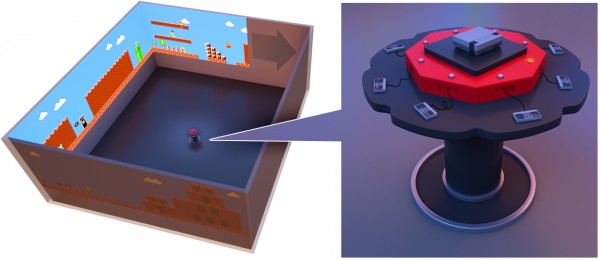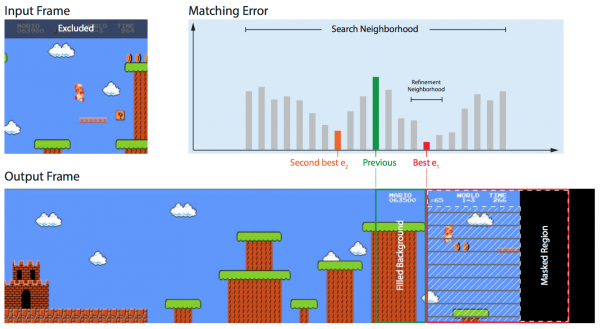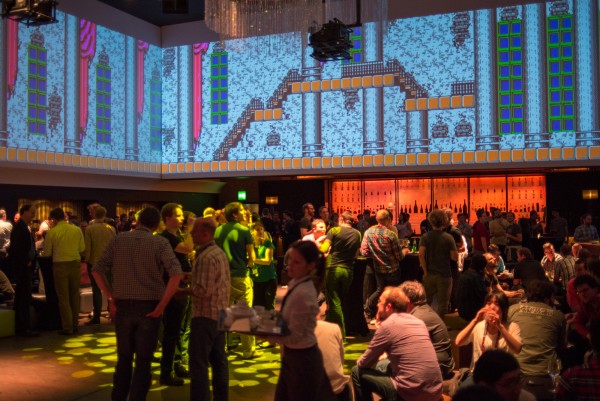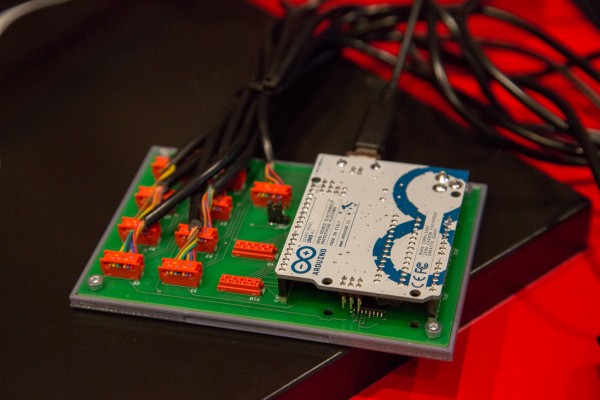Swiss Researchers solve side-scrolling immersion

Researchers at the ETH Game Technology Center of the Swiss national technical institute in Zi1/4rich, have applied their considerable talents to the critical problem of immersion in 2D side-scrolling, 8-bit era games. Witness in this video the splendor of a 360 projected Mario world that unrolls across the walls as players reveal each subsequent tile of the game map.

Robert Sumner, founder of the GTC explains:
...we observed that the 8-bit era of gaming had a huge collective influence on so many people, but the actual gaming experience was typically an individual one. We wanted to turn this idea upside down, and elevate the NES console experience into a group experience where the game surrounds a large event, allowing multiple people to play in a collaborative setting. The panoramic stitching and 8-way controller multiplexing hardware were the main ways we accomplished this task.

The group submitted the paper "Unfolding the 8-bit Era" to the European Conference on Visual Media Production, and then built the system to unveil at the Eurographics Conference. Utilizing a vintage 8-bit Famicom/NES system and a PC with a point-correspondence vision tracking algorithm, the researchers developed methods to detect the edge of each screen segment, adding it to a continuously expanding texture map in real-time. This panoramic texture is then seamlessly displayed on eight aligned projectors. The vision algorithm requires no prior knowledge about the game, so it is possible to play any side-scroller on this system, such as Super Mario Bros., Castlevania, Metroid, and the like.

In order to increase the number of participants in the fun of this large-scale gaming spectacle, the researchers created novel eight-controller multiplexing hardware based upon Arduino that hands the controls from one player's gamepad to the next at a fixed time interval. Knowing that you're about to grab the reins and inherit the state in which the previous player has left the hero surely adds a new twist to venerable games.

You can check out technical implementation details in the paper.